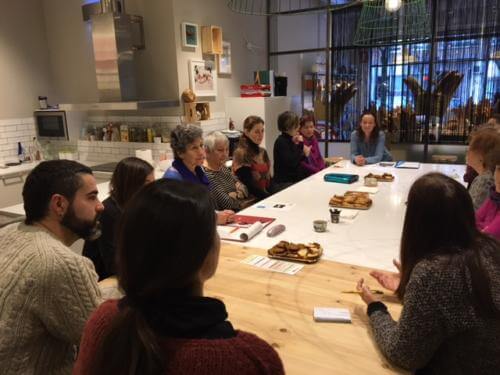Have You Heard of "Death Cafes?" It's an Interesting Idea...

Death has been a taboo subject in many societies and over many time periods. We don’t have to look far, it still is in our society and our current times.
At the same time, we feel death very differently when it happens far away than it does when it happens close to us, when it’s reality and when it’s fiction. Death cafes are a place to discuss our fears.
How many deaths are there in any Hollywood movie? In a lot of these films, people die all at once and the main character might even brag about it. Meanwhile, if you’re in pain or want to talk about death in real life, a lot of people will respond with a deep silence.
Not long ago an Argentinian psychiatrist left a comment on an online forum about this topic. He said he was receiving more and more patients who couldn’t overcome the pain of the death of a loved one.
This professional was surprised. It used to be that people’s families or surrounding environment helped them with this. Nowadays, in much greater numbers, people have to see a doctor to find someone who will listen to them when they want to talk about loss.
“Sleep with a thought for death and wake up with a thought for how short life is.”
-Proverb-
As uncomfortable as it may sound, it seems like there’s no place or willingness to talk about something as real as death. A lot of people have no choice but to live through their pain alone. If they bring it up, people tell them not to think about it. Or they try to find a way to “distract” them to help them get through their pain.
Even though we live alongside death every day, the topic has become distant, like a terrible page in the book of our life that we don’t have to read or one that we have to turn immediately.
That’s why when it happens close by we feel it as an absurd and strange surprise. And that’s also why we don’t have many tools to properly process the pain of a definitive loss. All of this is what inspired the opening of these so-called “death cafes.”
Death Cafes, an idea that makes sense
It all started with an idea the Swiss sociologist Bernard Crettaz had. This academic was a professor at the University of Geneva in 1989. He organized an exhibition called “Mortal Relief,” and got a very enthusiastic response. The main conclusion was that there were a lot of young people who wanted to talk about death, but had no way to do it.

That’s why later on, in 2004, Crettaz himself organized the first meeting of what he called the “Café Mortel.” The goal was to open up a space to talk about death. 250 people attended the meeting.
They ate a welcome appetizer and then talked about the subject for more than two hours. Then there was an exchange of ideas. The only rules were to be sincere and respect other people’s opinions.
The idea turned out to be so interesting and successful that other places immediately replicated it. “Death Cafes” started to show up in different parts of the world. Now there are 4,403 in total that exist in 48 countries over every continent.
Why do we need to talk about death?
A lot of people think talking about death means pointlessly bringing up a bitter subject. This argument, rather than presenting a real motive, expresses fear and anxiety that runs away from a confrontation. Instead they want to hide it under the rug.
There’s nothing more real in this life than death. And nothing is unavoidable. Every human being will go through it and we’ll all see loved ones fade into the darkness. Death cafes can help us address the need to talk about death.

Talking about death can create a certain amount of anxiety at first. That’s because we’re using words to approach unfamiliar territory. But if you open your mind to the subject and resist the fear, it’ll become more natural over time.
For anyone living with an illness, or who is close to someone with one, directly addressing the subject is actually very soothing. It helps foster peace and strength in the face of the fact of death.
For healthy people who see death as a far-off thing this kind of conversation can also be very helpful. Death can be a taboo subject. Talking about it in death cafes means learning to accept the idea without so much fear.
This becomes a very valuable tool when our life, or a loved one’s, reaches its final stage. Talking about it doesn’t create more pain, it prevents it. And it also gives a greater meaning and value to life itself.
Emma Kenny, a renowned British psychologist, summarizes by saying, “We spend a lot of time putting death far away from us and thinking it’s something that happens to other people. One of the things people have the hardest time with is recognizing how fragile life is.”
The paradox here is that by recognizing that fragility we can find an enriching worldview that will help us see a lot of the beauty contained in life itself. Because when we symbolically remove ourselves from death, we lose sight of this.

This text is provided for informational purposes only and does not replace consultation with a professional. If in doubt, consult your specialist.








